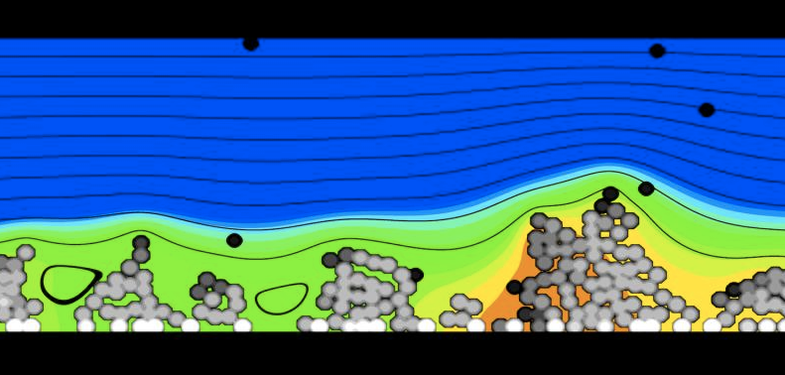A Personal Simulation of Your Blood Could Help Doctors Study Disease
Absent the creation of a personalized, living avatar, computer simulations will go a long way toward helping doctors figure out...

Absent the creation of a personalized, living avatar, computer simulations will go a long way toward helping doctors figure out what to do about your health. Sophisticated models will be able to look at your heart and predict future coronary problems, for instance. Researchers at the University of Pennsylvania are designing new simulations with virtual blood, improving the prospects for this type of tech.
Blood is a highly variable fluid, with all its components and changing characteristics — anything from platelet counts to oxygenation affects how it flows through your vasculature, making it difficult to predict how blood will respond to drugs. Hematologists at Penn wanted to develop a better model for how one component, platelets, responds to various cues.
Using a fleet of robots developed for drug studies, Diamond and his colleagues tested platelets from three different donors to examine how they reacted to three main biological cues, which increase calcium activity and help the platelets form clots. Then they developed simulations that can model what every single cell in a blood clot is doing. It’s the first time anyone has been able to accurately predict platelet behavior in actual blood-flow conditions, Diamond said.
“It would be impossible to do this with the cells of the liver, heart or brain, but we can easily obtain a tube of blood from each donor and run tests of platelet calcium release,” Diamond says in a Penn news release. Further work in this field could help predict drug responses for clinical trials, perhaps, or it could help model how humans will respond to medical implants. The work is published in the journal Blood.
[via Science Daily]